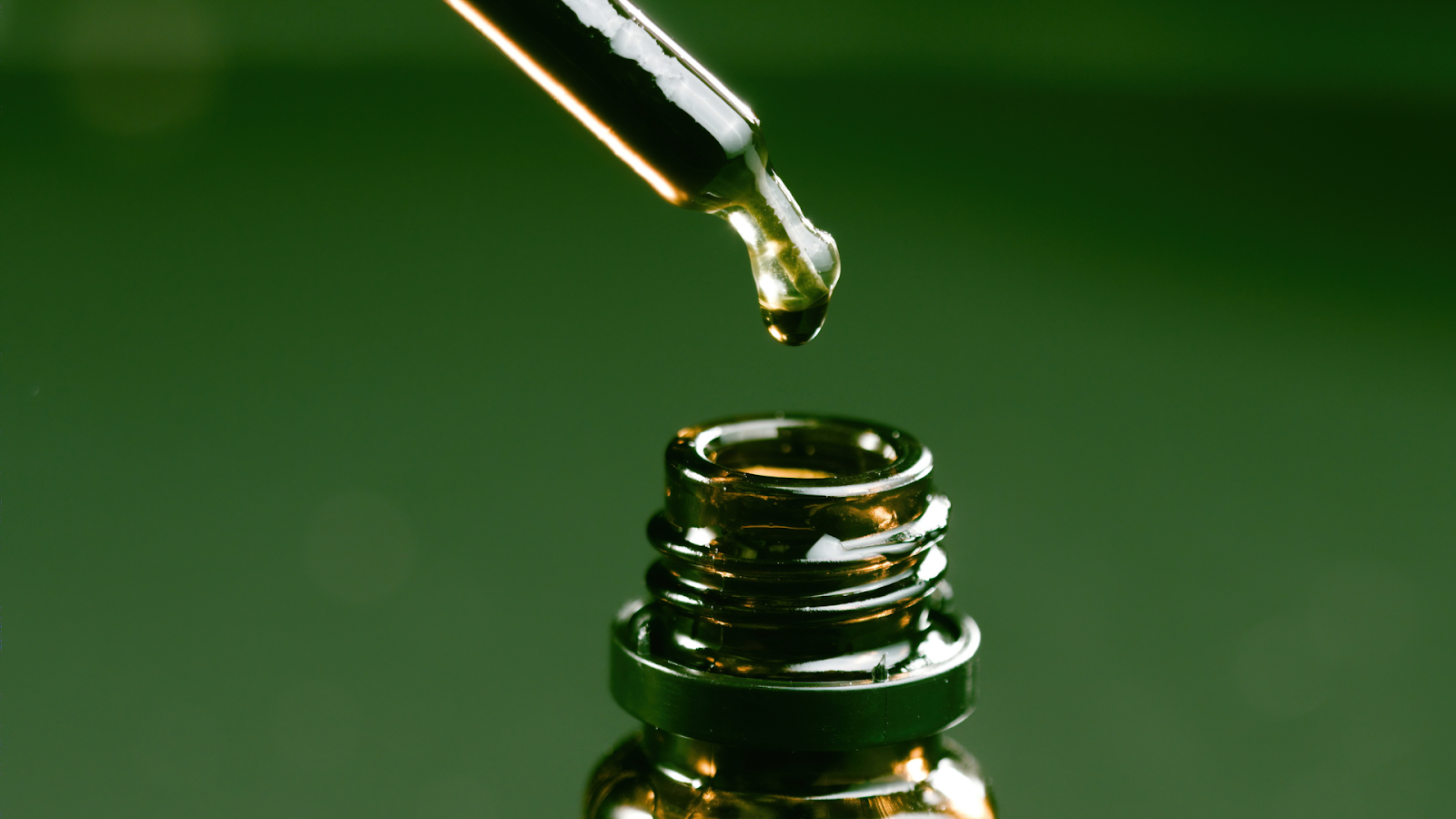Key Takeaways:
- While THC works by interacting with the body's endocannabinoid system to affect mood and perception, CBT focuses on changing negative thought patterns and behaviors for improved mental health.
- The legality and access to THC for medicinal purposes vary widely, whereas CBT is a widely accepted psychotherapeutic treatment available through healthcare professionals.
- THC can offer immediate relief for physical symptoms like pain and nausea, while CBT provides long-term strategies for coping with psychological issues. However, considerations such as legal status, potential side effects, and the importance of professional guidance are crucial in choosing the right treatment option.
The world of wellness and therapy offers a broad spectrum of solutions for those seeking relief from physical and mental health issues. Among the plethora of options, THC (Tetrahydrocannabinol) and CBT (Cognitive Behavioral Therapy) stand out for their distinct approaches to healing and improvement of life quality. While THC is a principal psychoactive constituent of cannabis, known for its recreational and medicinal use, CBT is a highly effective psychotherapeutic treatment that helps people learn how to identify and change destructive or disturbing thought patterns that negatively influence behavior and emotions. This article aims to shed light on both THC and CBT, exploring their effects, benefits, and key differences. By comparing these two modalities, we aim to provide a comprehensive overview that can guide individuals towards making informed decisions about their health and well-being.
Seeking premium CBD products? Search no more – turn to Soul! Our CBD goodies are meticulously crafted by medical professionals using high-quality, organic hemp. Dive into our selection of essential CBD wellness products and indulge in the pleasure of our tasty gummies and daily supplements.
Experience the Benefits of Cannabis with SOULDiscover how we harness the power of cannabis compounds to support your wellness journey. Here’s why choosing us makes a difference:
Ready to take the next step? Explore our range of cannabis solutions and elevate your wellness routine. |
Understanding THC
Tetrahydrocannabinol, commonly known as THC, is the chemical responsible for most of marijuana's psychological effects. It acts much like the cannabinoid chemicals made naturally by the body. Cannabinoid receptors are concentrated in areas of the brain associated with thinking, memory, pleasure, coordination, and time perception. THC attaches to these receptors and activates them, affecting a person's memory, pleasure, movements, thinking, concentration, coordination, and sensory and time perception.
Exploring CBT
Cognitive Behavioral Therapy (CBT) is a form of psychological treatment that has been demonstrated to be effective for a range of problems including depression, anxiety disorders, alcohol and drug use problems, marital issues, eating disorders, and severe mental illness. Numerous research studies suggest that CBT leads to significant improvement in functioning and quality of life. In many cases, CBT is as effective as, or more effective than, other forms of psychological therapy or psychiatric medications.
The Different Benefits of THC
THC, the primary psychoactive component found in cannabis, offers a range of benefits for both medicinal and recreational users. Understanding these benefits can help individuals make informed decisions about the use of cannabis products. Here are some of the key benefits associated with THC:
Let go of the stress and welcome a state of calm with our Out of Office Gummies. Specifically crafted to help you unwind and enjoy a moment of respite, Soul's gummies are the perfect escape. Savor the feeling of a mini-vacation with every bite:
Pain Relief
THC is widely recognized for its analgesic effects. It works by binding to cannabinoid receptors in the brain and nervous system, reducing the perception of pain. This makes THC a valuable treatment for chronic pain conditions, including neuropathic pain and pain associated with multiple sclerosis and arthritis.
Improved Sleep
For individuals suffering from insomnia or sleep disturbances, THC can offer significant relief. It helps to induce sleep and can increase the duration of deep sleep, which is crucial for the restorative process of the body.

Appetite Stimulation
THC is known to increase appetite by interacting with receptors in the brain that control hunger signals. This is particularly beneficial for patients undergoing chemotherapy and those with conditions like HIV/AIDS, where increased appetite can contribute to improved nutrition and quality of life.
Nausea and Vomiting Relief
THC has antiemetic properties, making it effective in reducing nausea and vomiting. This is especially useful for cancer patients experiencing these symptoms as side effects of chemotherapy.
Mood Enhancement
Many users report improvements in mood and a reduction in symptoms of anxiety and depression when using THC. This is attributed to THC's ability to release dopamine in the brain, creating feelings of euphoria and relaxation.
Neuroprotective Properties
Some studies suggest that THC has neuroprotective qualities, which means it has the potential to protect brain cells from damage. This is being explored for therapeutic uses in neurodegenerative diseases such as Alzheimer's and Parkinson's disease.
Some Potential Benefits of CBT
Cognitive Behavioral Therapy (CBT) is a highly versatile and effective treatment method that offers numerous benefits for mental and emotional health. Its adaptability to a wide range of psychological issues makes it a preferred choice for many therapists and patients alike. Here are some key benefits associated with CBT:
Effectiveness for a Range of Conditions
CBT has been extensively researched and proven effective for treating various conditions, including anxiety disorders, depression, post-traumatic stress disorder (PTSD), obsessive-compulsive disorder (OCD), panic attacks, and eating disorders, among others.
Provides Tools for Self-Help
One of the fundamental aspects of CBT is empowering individuals with tools and strategies to manage their own mental health. Skills learned during CBT sessions, such as cognitive reframing and mindfulness, can be applied in everyday situations, providing lasting benefits beyond the therapy sessions.
Short-Term Treatment with Long-Term Benefits
CBT is known for being a relatively short-term treatment, typically ranging from 5 to 20 sessions. Despite this, the effects of CBT can be long-lasting, as individuals continue to use and benefit from the strategies learned during therapy.
Reduction of Symptoms
CBT effectively reduces symptoms of mental health conditions by addressing negative thought patterns and behaviors. This can lead to a significant improvement in quality of life and functioning.
Improves Coping Skills
CBT helps individuals develop better coping strategies for dealing with life's challenges, stressors, and emotional issues. This includes learning to face fears rather than avoid them, problem-solving skills, and relaxation techniques.
Structured and Goal-Oriented
CBT is highly structured and goal-oriented, which can be particularly beneficial for individuals who prefer a more systematic approach to therapy. This structure helps in measuring progress and ensures that both therapist and patient focus on specific objectives during treatment.
Can Be Combined with Other Treatments
CBT can be effectively combined with other therapeutic approaches or medications, offering a comprehensive approach to mental health treatment.

Final Thoughts
The comparison between THC (Tetrahydrocannabinol) and CBT (Cognitive Behavioral Therapy) showcases the wide range of options available for health and wellness. THC, the psychoactive part of cannabis, offers benefits like pain relief and mood improvement by changing the brain's chemistry. In contrast, CBT is a type of psychotherapy that changes negative thoughts and behaviors without using drugs, aiming to improve mental health. Each has its own advantages, ways of working, and things to consider. Choosing between them or combining them should depend on personal needs and professional advice. This contrast underlines the value of a comprehensive approach to health, whether it's through chemical changes or psychological therapy, with the common aim of enhancing life quality. The discussion about THC versus CBT not only points out their differences but also the ongoing conversation about personal health strategies, suggesting that combining various treatments to fit individual needs might be the future of achieving overall well-being.
Soul offers a range of legal, high-quality CBD products that complement this careful selection, ensuring consumers can find products that suit their wellness journey.
Want to learn more? Check out these blogs:
- Melatonin Alternatives: Sleep Deeper With THC
- THC For Sleep: Does It Really Work?
- Microdosing THC 101: The Ultimate Guide To A Great Time
Frequently Asked Questions
Is THC legal everywhere for medicinal use?
The legality of THC for medicinal use varies by country and, in some cases, by region within countries. Always check local laws before using THC for medicinal purposes.
Can CBT help with addiction to substances, including cannabis?
Yes, CBT is an effective treatment for substance use disorders, including addiction to cannabis. It helps individuals understand the triggers of their addiction and develop coping strategies.
How long does it take for THC to show effects?
The onset of effects from THC depends on the method of consumption; inhalation can produce effects within minutes, while edibles can take 1-2 hours.
Can CBT be done self-administered, or does it require a professional?
While self-help CBT resources exist, working with a trained therapist is recommended to get the full benefits of the therapy.
Does THC have any effect on cognitive behavioral therapy effectiveness?
There's limited research on the interaction between THC and CBT effectiveness. However, substance use can impact cognitive functions and potentially interfere with the therapeutic process.
Are there any age restrictions for using THC or undergoing CBT?
For THC, legal age restrictions apply, typically 18 or 21 years and older, depending on the jurisdiction. CBT can be adapted for any age, but parental consent is required for minors.
Can THC be used in conjunction with CBT for treating mental health disorders?
Combining THC with CBT should be done under the guidance of a healthcare professional, as THC can affect individuals differently and may not be suitable for all mental health conditions.
How does one start CBT or access THC for medical purposes?
To start CBT, seek a referral to a licensed psychotherapist or psychologist. Accessing medical THC requires a prescription from a healthcare provider, where it's legally permitted.
Are there any risks of using THC for long-term treatment?
Long-term use of THC can lead to tolerance, dependence, and potential cognitive effects, emphasizing the need for medical supervision.
Can CBT change personality, or does it just address behavioral issues?
CBT primarily addresses maladaptive thought patterns and behaviors rather than changing personality. It helps improve coping mechanisms and emotional regulation.
Sources:
- Russo, E. B. (2011). Taming THC: potential cannabis synergy and phytocannabinoid‐terpenoid entourage effects. British Journal of Pharmacology, 163(7), 1344-1364.
- Atakan, Z. (2012). Cannabis, a complex plant: Different compounds and different effects on individuals. Therapeutic Advances in Psychopharmacology, 2(6), 241-254.
- Pertwee, R. G. (2008). The diverse CB1 and CB2 receptor pharmacology of three plant cannabinoids: THC, CBD, and CBN. Cannabis and Cannabinoid Research, 153(2), 199-215.
- InMed Pharmaceuticals. (2022, January 19). InMed Launches Cannabicitran (CBT), Expanding its Rare Cannabinoid Portfolio for the Health and Wellness Sector. Retrieved from https://www.inmedpharma.com/news_release/inmed-launches-cannabicitran-cbt-expanding-its-rare-cannabinoid-portfolio-for-the-health-and-wellness-sector/
- Kaczkurkin, A. N., & Foa, E. B. (2018). Cognitive-behavioral therapy for anxiety disorders: an update on the empirical evidence. Dialogues in Clinical Neuroscience, 17(3), 337–346. ncbi. https://doi.org/10.31887/DCNS.2015.17.3/akaczkurkin
- Mack, A., & Joy, J. (2011). MARIJUANA AND PAIN. Nih.gov; National Academies Press (US). https://www.ncbi.nlm.nih.gov/books/NBK224384/




